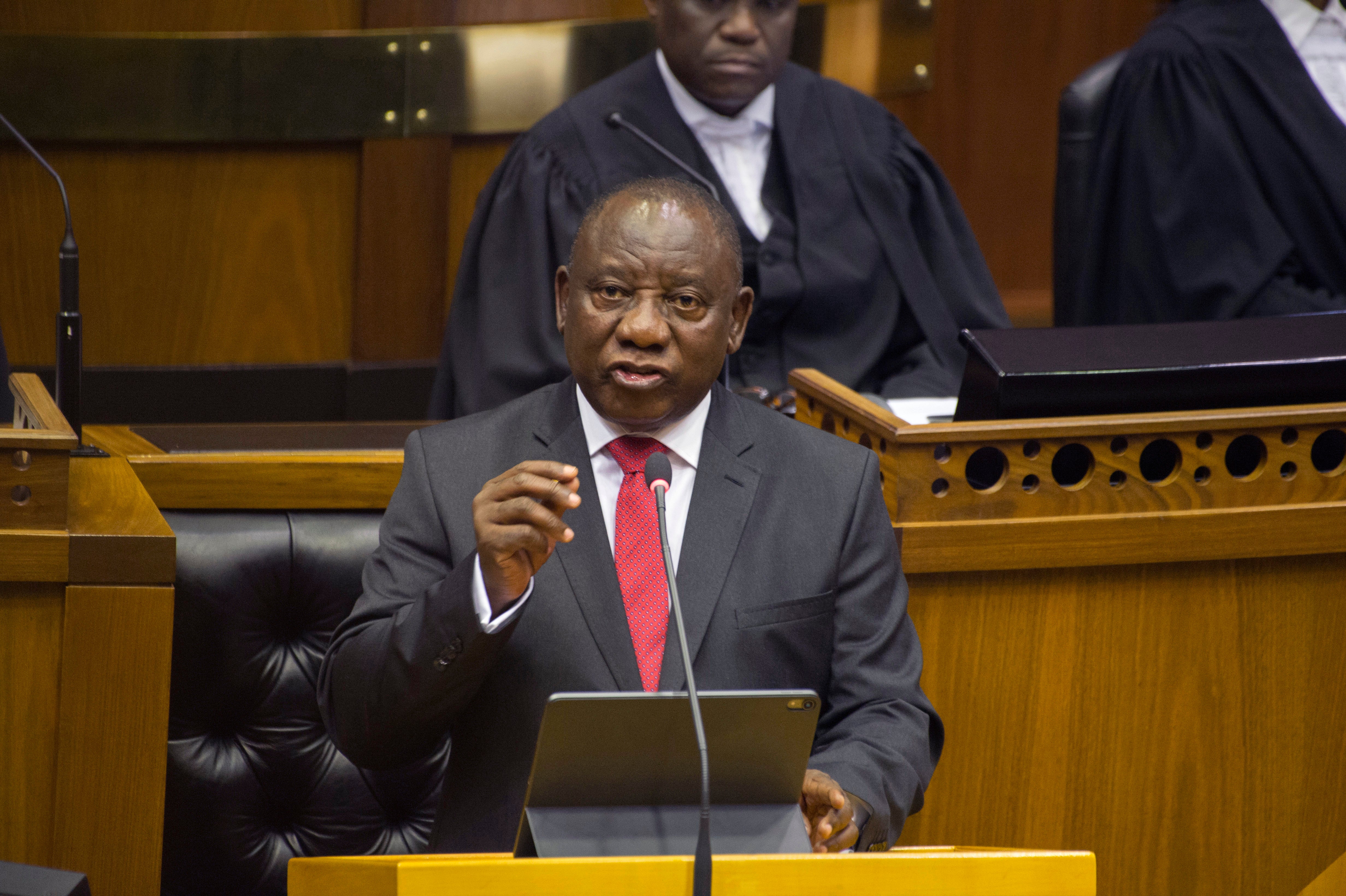South Africa extends relief grants to help poor amid virus
South African President Cyril Ramaphosa announced Thursday that his government will extend relief grants to 6 million of the country’s unemployed who have been hurt by the economic downturn caused by the COVID-19 outbreak

Your support helps us to tell the story
From reproductive rights to climate change to Big Tech, The Independent is on the ground when the story is developing. Whether it's investigating the financials of Elon Musk's pro-Trump PAC or producing our latest documentary, 'The A Word', which shines a light on the American women fighting for reproductive rights, we know how important it is to parse out the facts from the messaging.
At such a critical moment in US history, we need reporters on the ground. Your donation allows us to keep sending journalists to speak to both sides of the story.
The Independent is trusted by Americans across the entire political spectrum. And unlike many other quality news outlets, we choose not to lock Americans out of our reporting and analysis with paywalls. We believe quality journalism should be available to everyone, paid for by those who can afford it.
Your support makes all the difference.South African President Cyril Ramaphosa announced Thursday that his government will extend relief grants to 6 million of the country’s unemployed who have been hurt by the economic downturn caused by the COVID-19 outbreak.
Ramaphosa, delivering an economic recovery plan to parliament, also announced more than $5.9 billion for infrastructure projects over the next 10 years to stimulate the economy and create jobs, many of which were lost during the country’s strict lockdown.
The initial grants, announced as part of the $26 billion stimulus package announced when the country went into lockdown on March 27, were only supposed to last for six months but have now been extended for a further three months.
“Studies have shown that these grants were vital in reducing the impact of the pandemic on levels of poverty and hunger,” said Ramaphosa.
South Africa has lost up to 2.2 million jobs in the second quarter of the year, taking the unemployment rate to a record high of 42%, according to official statistics released last month.
South Africa imposed one of the strictest lockdowns in the world to curb the spread of the coronavirus shutting down almost all sectors of its economy during the months of April and May, including a ban on the sales of alcohol and cigarettes. As cases of COVID-19 declined, the country has gradually opened up, ending almost all restrictions but facemasks remain mandatory in all public spaces.
Africa’s most developed country slipped further into recession in the second quarter of the year, contracting by 51%. Its economy is expected to shrink by up to 8.2% in 2020, its central bank announced last month.
Ramaphosa said more than $5 billion that will be invested in government projects over the next several years which should create up to 800,000 jobs.
Miyelani Mkhabela, chief economist at Antswisa Transaction Advisory Services, lauded the recovery plan announced by Ramaphosa, but warned that failure to implement it properly will have dire consequences.
“I think this is one of the good plans as it focuses on the main issues facing this economy, which is high unemployment and this energy problem," said Mkhabela. “When you have so many people unemployed and 2 million more losing their jobs during the pandemic, it disadvantages the economy and creates a population of people who will rely on welfare.”
Ramaphosa also announced that the country would involve more independent power producers to increase the country’s energy capacity, which remains under strain and has been cited as contributing to the country’s economic challenges.